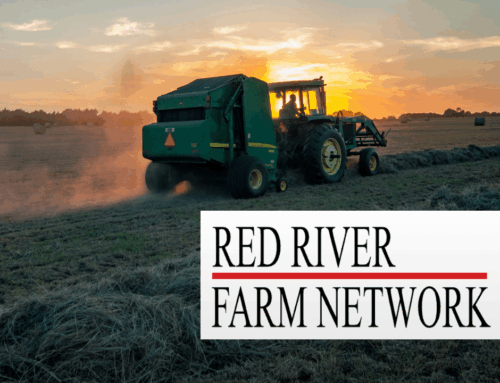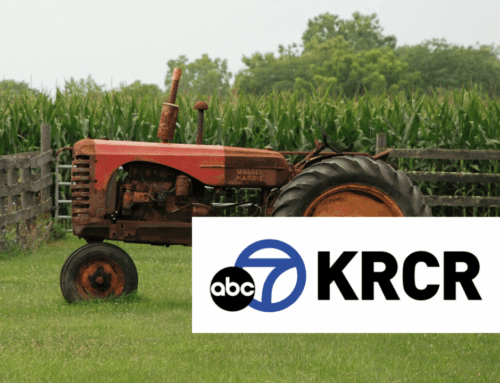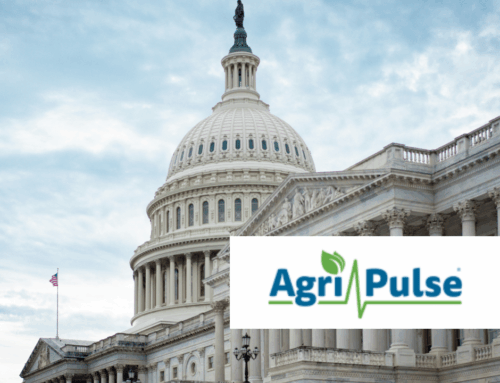Despite our nation’s $16.8 trillion debt and record deficits, agricultural lobbyists continue to fearlessly campaign for more subsidies regardless of the state of the farm economy or whether or not agricultural producers even need federal support. Today’s agribusiness industry runs a sophisticated political operation in Washington that lobbies for expanded crop insurance subsidies, status quo subsidies like government-set price supports, and other agricultural subsidies.
Last year, the full Senate and the House Agriculture Committee each passed bills that included more government subsidies for favored crops and special interest carve-outs for everything from cotton to catfish, which have no place in modern agricultural markets. This month, House and Senate Agriculture Committees produced new bills with similar special interest carve-outs that fail to reduce the government’s role in agriculture. The agribusiness and crop insurance industries convinced the Agriculture Committees to expand the already heavily subsidized federal crop insurance program and create new agribusiness entitlements called “shallow loss,” which create even more generous government-guaranteed profit margins for favored crops like corn, soybeans, and wheat. While lawmakers largely agreed to eliminate the indefensible direct payment program, these outdated subsidies will likely be in effect until at least September, when the current farm bill expires.
Whether through lobbying expenditures or political campaign contributions, the agribusiness and crop insurance industries continue to make their mark on our nation’s agricultural policies. Former Members of Congress even exert influence to get special carve-outs for their clients like new popcorn and peanut subsidies and profit margin guarantees for cotton and dairy. Some current members of the House and Senate Agriculture Committees and/or their spouses receive the very subsidies they are tasked to oversee. Not surprisingly, it is difficult to end this web of inefficient and ineffective agricultural subsidies to get our nation’s finances under control.
Lobbying Power
Agribusiness and crop insurance interests spent $95.3 million lobbying Congress and various federal agencies last year – more than $261,000 per day. Since 2006, they have spent more than $615 million lobbying the federal government. In Figure 1 below, note that lobbying ramps up in years leading up to farm bill deliberations (before 2008 and 2012). The farm bill is a massive piece of legislation that covers wide-ranging topics from nutrition assistance and rural development to agricultural crop subsidies.
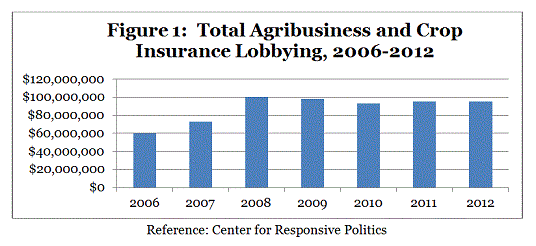
Revolving Door Lobbyists
Agribusiness and crop insurance interests also fielded 764 lobbyists, more than one for each member of Congress. More than half of these lobbyists were revolving door personnel, meaning they know the ins and outs of Washington, having previously worked or interned on Capitol Hill, at the White House or presidential campaign, or for a federal agency. Of these lobbyists, about two-thirds (510) were examined more closely since they lobby to make agricultural and/or crop insurance subsidies or policies more lucrative for their clients. Over 40 percent worked or interned on Capitol Hill and one of every four worked or interned for a House or Senate Committee. More specifically, at least 33 lobbyists formerly worked at the U.S. Department of Agriculture (USDA) and 38 worked or interned on the House or Senate Agriculture Committee. Table 1 includes more information about the former employers of these 510 agribusiness lobbyists.
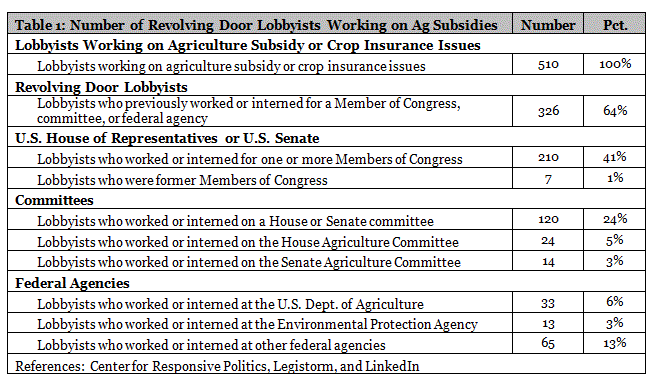
At least 98 of these lobbyists are advocating to specifically retain or expand the current maze of crop insurance subsidies that likely cost taxpayers a record $14 billion in fiscal year 2012 while padding the bottom lines of profitable crop insurance companies and agribusinesses. Of these 98 lobbyists, 14 worked on the House or Senate Agriculture Committee, 12 previously worked at USDA, and 12 worked for a non-Ag Committee. Below are more details about just 10 of these well-connected crop insurance lobbyists:
- Tom Sell: formerly Director of Intergovernmental Affairs at USDA and Deputy Chief of Staff on the House Agriculture Committee, Sell now lobbies on behalf of groups like the Crop Insurance Professional Association.
- Jeff Harrison: formerly Counsel on the House Agriculture Committee, Harrison now lobbies with Tom Sell and former Representative Larry Combest (R-TX). He doesn’t hide the fact that he was one of the lead lawyers writing the 2000 Agricultural Risk Protection Act, which greatly expanded crop insurance subsidies, and the 2002 Farm Bill’s Commodity Title.
- Michael Torrey: formerly a Deputy Chief of Staff at USDA, Torrey now lobbies for the Crop Insurance and Reinsurance Bureau and Crop Insurance Research Bureau.
- Michael McLeod: formerly Staff Director on the Senate Agriculture Committee, McLeod helped found McLeod, Watkinson & Miller which lobbies on behalf of the American Association of Crop Insurers and Western Peanut Growers Association.
- William O’Conner: formerly Chief of Staff on the House Agriculture Committee under Chairman Larry Combest, O’Conner also now lobbies for the American Association of Crop Insurers and Western Peanut Growers Association.
- Dale Moore: formerly a Chief of Staff at USDA and Legislative Director on the House Agriculture Committee, Moore now lobbies for the American Farm Bureau which is affiliated with American Farm Bureau Insurance Services, Inc.
- Brent Gattis: formerly Deputy Chief of Staff on the House Agriculture Committee, Gattis now lobbies for the National Association of Crop Insurance Agents.
- H R Bert Pena and Phillip Fraas: formerly Counsel and Chief of Staff on the House Agriculture Committee, respectively, Pena and Fraas both now lobby for the National Crop Insurance Services and American Peanut Shellers Association.
- Stephen Frerichs: Frerichs previously worked at the Office of Management and Budget (OMB) focusing on agricultural insurance issues. He now lobbies on behalf of Rain & Hail, an approved crop insurance provider that receives taxpayer subsidies.
But the revolving door doesn’t close there. At least seven Members of Congress also lobby on agricultural and crop insurance issues, including two who helped write the 2002 farm bill:
- Larry Combest: as a former Republican Congressman from Texas and Chairman of the House Agriculture Committee from 1999 to 2003, Combest wrote the 2002 farm bill and the 2000 Agriculture Risk Protection Act (ARPA) which greatly expanded crop insurance subsidies. In 2005, he founded Combest, Sell, and Associates with Tom Sell to lobby for groups like the Crop Insurance Professional Association, National Grain Sorghum Producers, Minnesota Corn Growers Association, Cotton Warehouse Association of America, American Sugar Alliance, USA Rice Federation, and Western Peanut Growers Association.
- Charlie Stenholm: as a former Democratic Congressman from Texas, Stenholm helped write the 2002 farm bill as Ranking Member of the House Ag Committee. He now lobbies for Syngenta AG, Federal Agricultural Mortgage Corp, and Rolling Plains Cotton Growers.
- Lauch Faircloth: a former Republican Senator from North Carolina, Faircloth served on the Appropriations, Banking, and Small Business Committees; he now lobbies for Dow Chemical.
- Vic Fazio: a former Democratic Congressman from California, Fazio served on the powerful Appropriations Committee and was the head of the Democratic Congressional Campaign Committee. He now lobbies for Archer Daniels Midland and Dow Chemical.
- Don Nickles: a former Republican Senator from Oklahoma, Nickles served as Chairman of the Senate Budget Committee and was a member of the Energy and Natural Resources, Finance, Joint Printing, Joint Taxation, and Rules and Administration Committees. He also served in leadership as the Republican Whip. He now lobbies on behalf of Monsanto Co.
- Bill Paxon: a former Republican Congressman from New York, Paxon served on the House Commerce Committee and was the head of the National Republican Campaign Committee. He now lobbies for Archer Daniels Midland and Dow Chemical.
- Vin Weber: a former Republican Congressman from Minnesota, Weber served on the powerful House Appropriations Committee and as a member of House Republican Leadership. He now lobbies for Agstar Financial Services.
Campaign Contributions to Agriculture Committee Members
The agribusiness and crop insurance sectors also exert influence by contributing to political campaigns, particularly to members of House and Senate Agriculture Committees. During the 2012 election cycle, Political Action Committee (PAC) donations from agribusinesses (minus tobacco and forestry interests) hit a record $17.3 million while political contributions from crop insurance interests totaled nearly $4 million. Agribusiness and crop insurance PACs send 30 percent of their campaign contributions to members of the House and Senate Agriculture Committees even though these individuals only make up 12 percent of Congress. Table 2 includes a list of the largest agribusiness and crop insurance-related contributors to the Agriculture Committees.
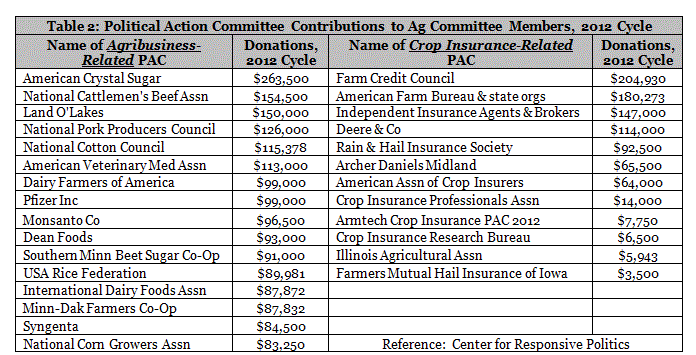
The top Senate recipients of agribusiness and crop insurance PAC donations were Agriculture Committee Chairwoman Stabenow (D-MI) and former Ranking Member Roberts (R-KS), who received $508,015 and $228,467 during the 2012 election cycle, respectively. Sen. Cochran (R-MS), who became Ranking Member in 2013, received only $17,000, but that will likely change. The top House recipients were Chairman Lucas (R-OK) and Ranking Member Peterson (D-MN), who received $541,367 and $415,482, respectively. Table 3 lists PAC donations to all Ag Committee members.
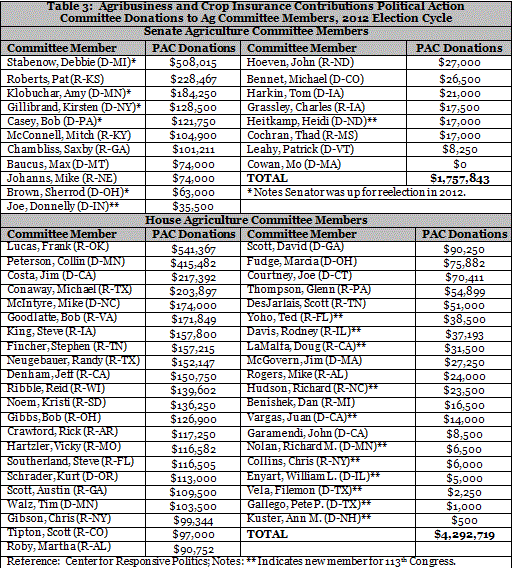
Even Members of Congress and Their Spouses Reap Agricultural Subsidies
Lobbying expenditures and political contributions are not the only examples of conflicts of interest in our nation’s agricultural policies. At least 11 members of the Agriculture Committees or their spouses have received agricultural subsidies, either directly or through various trusts, limited liability companies, corporations, partnerships, or other legal entities. Three of these Representatives hold top posts on the House Agriculture Committee – Chairman Lucas, Ranking Member Peterson, and Rep. Neugebauer, the second top Republican on the General Farm Commodities and Risk Management Subcommittee which happens to be in charge of crafting agricultural and crop insurance subsidies.
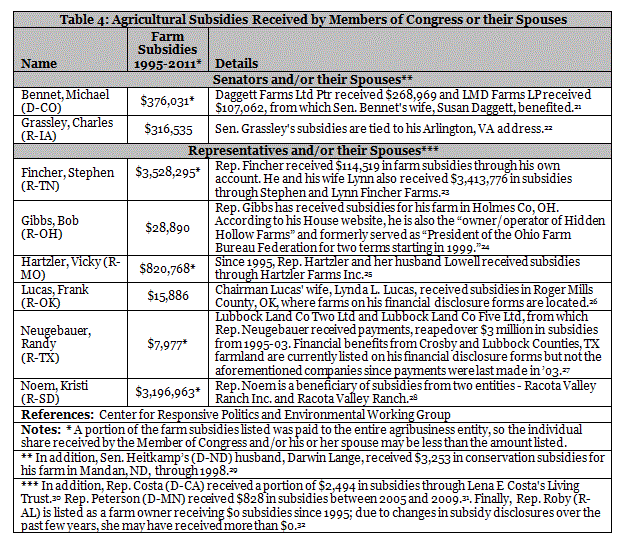
Conclusion
Our nation’s agricultural safety net is in dire need of reform. The farm bill must be reformed to reflect today’s modern production practices and the current state of the farm economy. Taxpayers can no longer afford to dispense unlimited and unnecessary subsidies to some of our country’s most profitable crop insurance companies and agribusinesses, especially as the agriculture industry comes off one of its best years of profits in a generation. A path toward a more cost-effective, transparent, accountable, and responsive agricultural safety net can be found. But first, special interests, their connections, and conflicts of interest must be exposed if we ever hope to break the cycle of status quo policies that have dominated U.S. agriculture policy since the Great Depression.
For more information, contact Joshua Sewell at 202-546-8500 x116, or josh at taxpayer.net.


